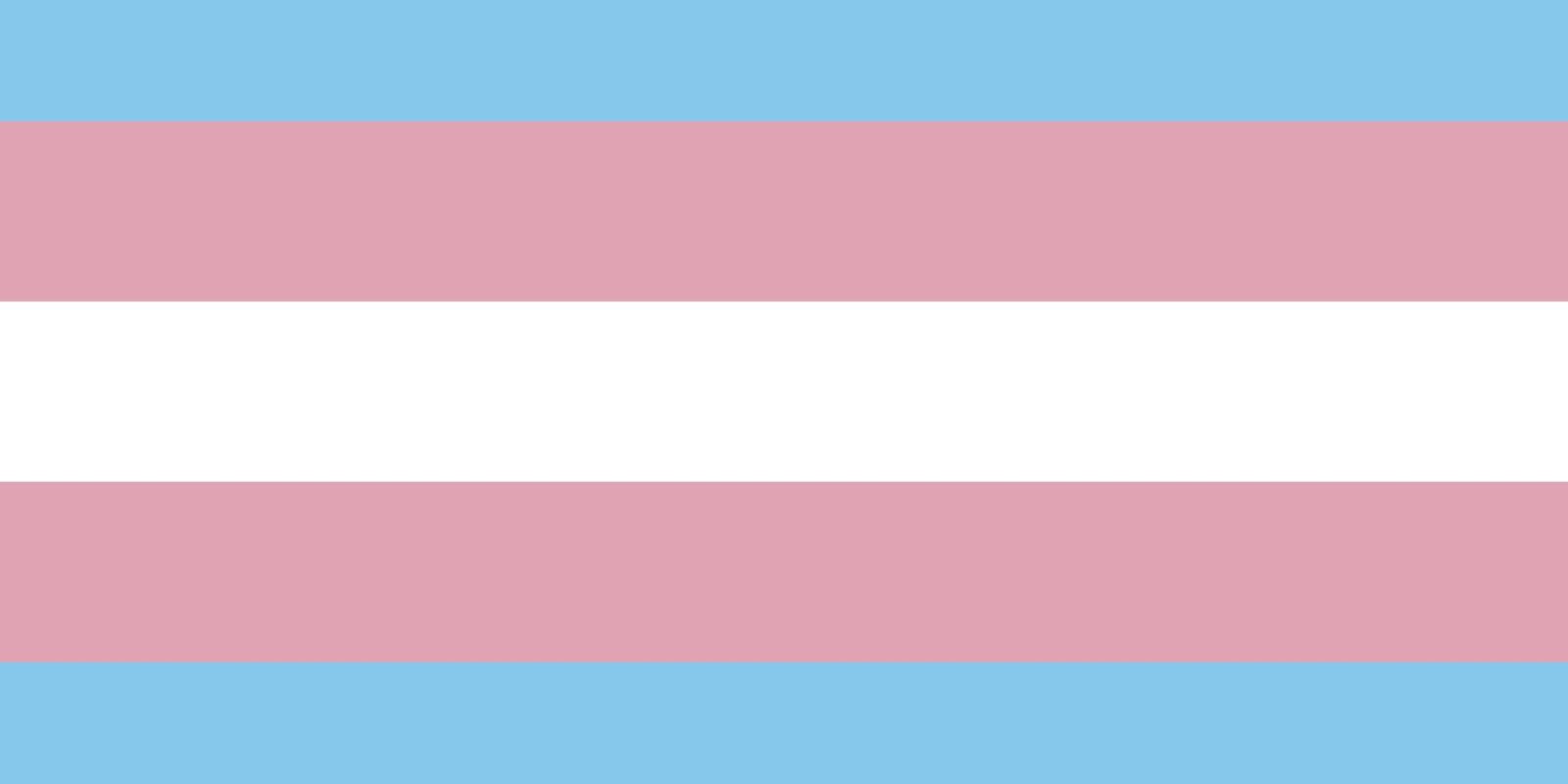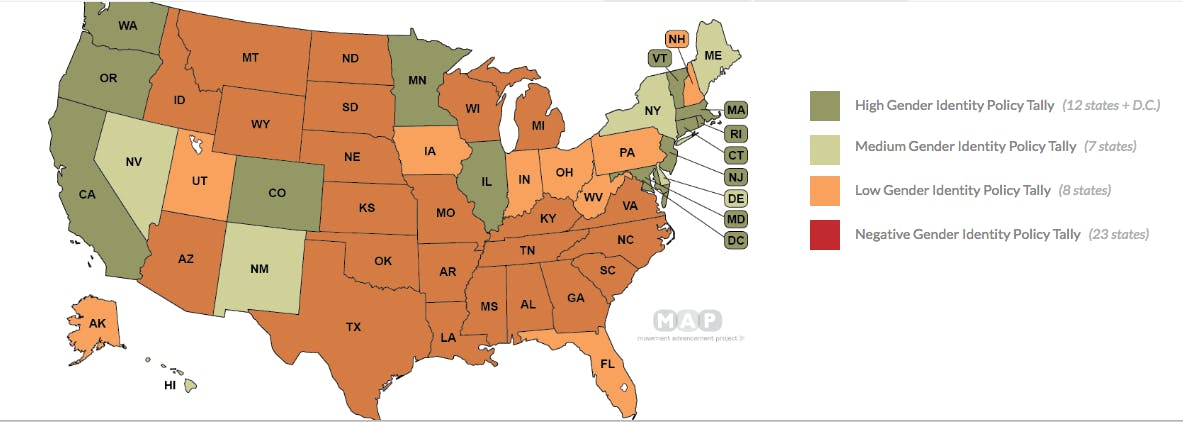While the LGBTQ community has made progress as far as rights and protections recent years, it has not been without steps backward. In particular, the transgender community has suffered by way of less trans-inclusive policies and explicit protections that include gender identity.
As a new study from LGBT think tank MAP shows, the queer community has good reason to be concerned over legal protections across the nation, with the transgender community especially vulnerable.
In 2016, there were about 200 anti-LGBT bills introduced in more than 20 states. Given that there is now a Republican majority in both the House and Senate, many are concerned that anti-LGBT bills will pass into law at a rate much higher than in subsequent administrations.
Nearly half of the nation—a total of 23 states—have laws that actively harm, limit, or exclude the trans community specifically. Also, about 35 percent of LGBTQ population lives in states with negative gender identity policies.
Such a lack of protections deeply affects the day to day life of trans people. For example, 68 percent of transgender people live without an ID that matches their gender identity, which is partially due to some state governments requiring trans people have sex-reassignment surgery to get their IDs changed. More than a quarter of transgender workers say they have been fired, denied a promotion, or not been hired because of their gender identity—acts that aren’t illegal in some states. And more than a third of transgender people say they were denied service, verbally harassed, or physically assaulted in a public place due to their gender identity.
Trans youth also experience higher rates of bullying, harassment, and are more likely to drop out of school.
When it comes to housing protections, anti-discrimination employment policies, and the ability to legally adopt your child, it can feel terrifying for the queer community to have to weigh these odds based on their zip code. But it seems unlikely that they’ll see any federal protections in the near future.



